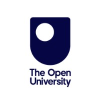- A PhD in Physics, Astronomy, Engineering or a closely related subject
- A background in either UV/optical astronomy or detector physics.
- Proficiency in coding in Python, MATLAB, C/C++, or similar development environments
- demonstrable problem solving and analytical skills and a strong record of research and/or knowledge exchange.
Space Detector Calibration Scientist - Milton Keynes, United Kingdom - The Open University

Description
Change your career, change lives
The Centre for Electronic Imaging (CEI) is a research centre based within the School of Physical Sciences at the Open University. The CEI is a collaboration between the Open University and Teledyne e2v, a world-leading manufacturer of scientific and industrial image sensors. The CEI is dedicated to conducting research into advanced imaging technologies for science applications and conducts its research in collaboration with many universities, agencies and companies including the UK Space Agency, European Space Agency, NASA and Teledyne e2v.
One such mission is the Canadian-led Cosmological Advanced Survey Telescope for Optical and ultraviolet Research (CASTOR), which is a 1m space telescope that will provide high-resolution imaging in the ultraviolet (UV) and blue-optical wavelengths. The CEI is working with NASA/JPL and several UK and Canadian research institutions on the imaging instrument for CASTOR and is responsible for the testing, modelling, and verification of the performance of the UV-enhanced CMOS Imaging Sensors (CIS) used for this instrument.
We are seeking to appoint an enthusiastic individual with experience in astronomy and/or detector physics to join the CEI CASTOR project team as a CASTOR Detector Calibration Scientist. The successful candidate will be trained by the team as necessary to enable them to work within the CEI CASTOR project team, with a focus on the development, test and space qualification of the UV-enhanced CIS devices for CASTOR and related calibration and correction procedures for in-flight operations of the CASTOR instrument. The role holder will be engaged in all aspects of the development, planning, and calibration campaigns for the detector test and simulation activities designed to characterise and optimise the performance of the detectors for flight, while connecting between the laboratory testing and radiation campaigns and the UV astronomy science requirements, interfacing between the related teams at the OU, NASA/JPL, CSA, University of Leicester and wider technical and science collaborators.
Skills and experience
